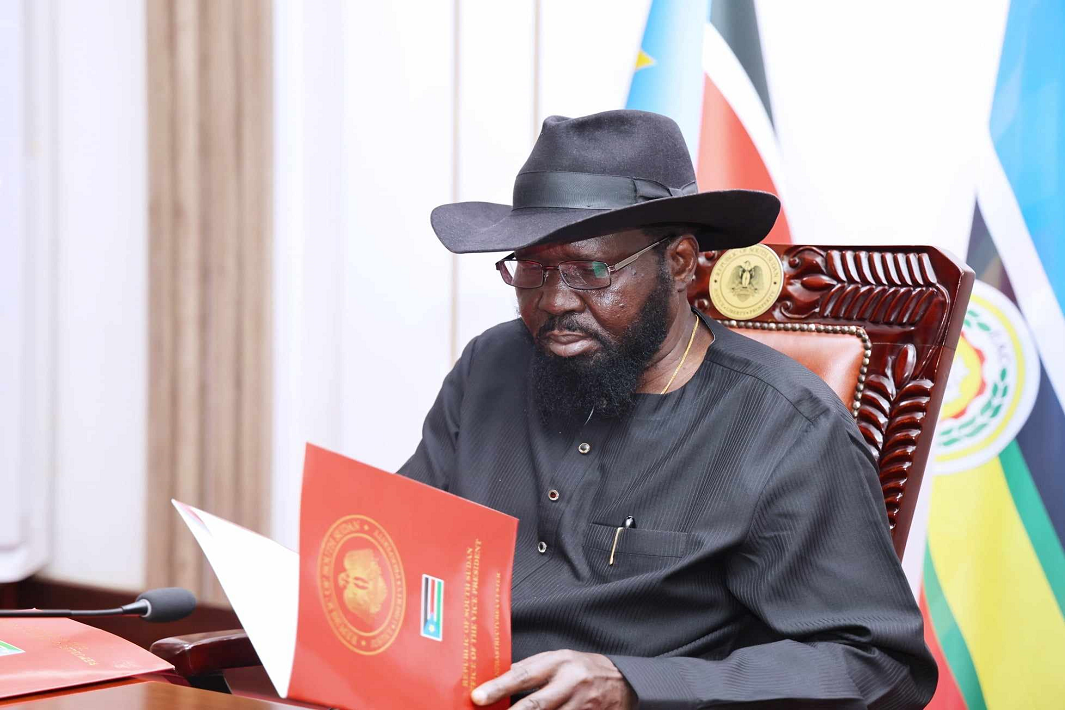By Wesley Omondi
JUBA, SEPTEMBER 20, 2024 (CISA)—The decision to extend South Sudan’s transitional period by two years has been met with widespread disappointment, both domestically and internationally.
On September 18, 2024, Mr. Nicholas Haysom, the Special Representative of the UN Secretary-General, addressed the Revitalized Joint Monitoring and Evaluation Committee (RJMEC) to discuss this extension, expressing the United Nations’ endorsement with deep regret adding that the country was not yet ready for elections that would generate a credible and peaceful outcome, making the extension necessary.
“The UN will endorse the extension of the transitional period, but we do so with real regret and disappointment,” Haysom said.
Despite the extension, Haysom stressed that critical decisions are urgently needed to restore confidence in the process while emphasizing the need for a clear timeline to bring about free, fair, and credible elections. The Special Representative also highlighted the ongoing lack of progress since the 2021 UN electoral needs assessment and subsequent efforts by UNMISS and other international partners.
“Since the first UN South Sudan electoral needs assessment mission in 2021, we and our partners have extended support to the government, particularly the national electoral institutions,” Haysom explained.
British Ambassador to South Sudan, Guy Warrington, echoed these sentiments, abstaining from voting on the proposal to extend the transitional period while clarifying that the abstention was a reflection of deep disappointment in the government’s failure to implement the promises made in the previous extension. He called for a credible plan to ensure that the next 24 months would deliver what the past years have failed to achieve.
“This is not a vote against the peace process,” Warrington said, warning “Commitments were made in 2022, in 2018, and 2015. We cannot find ourselves in a position of considering an extension again in 2026.”
The South Sudan Council of Churches (SSCC) has also expressed disappointment over the extension, urging political elites and parties to the peace agreement to honour their commitments.
His Eminence Stephen Cardinal Ameyu Martin Mulla, the Deputy Chairperson of the SSCC and the president of the Sudan and South Sudan Catholic Bishops’ Conference (SSCBC), emphasized the lack of political will that has left key provisions of the peace roadmap unfulfilled.
“The Church has been closely monitoring the implementation of the roadmap. All the reasons cited for this latest extension were the same as those given during previous extensions,” Cardinal Ameyu noted, urging leaders to stop exploiting the resilience of South Sudanese citizens.
The extension has also sparked frustration among South Sudanese citizens. Many see the delay in elections as a setback to the political change they were hoping for.
“People were looking at the elections as a way to bring change, especially with the devaluation of our currency. The only hope for the citizens was that the elections would bring about change,” Luka Aban Nyaidiing, a resident of Juba, voiced his disappointment.
Mary Ajak, another citizen, expressed concern about the impact on vulnerable groups, saying “We were hoping if the election was held this year, it would have been good. I wanted change because the situation is very bad, especially for women—we are suffering.”
Political analyst Dr Abraham Kuol Nyuon from Juba University questioned the effectiveness of the extension. Kuol emphasized that while the extension could prevent conflict by maintaining the status quo, it could also prolong citizens’ suffering. He urged the government to prioritize establishing electoral institutions, expediting the constitution-making process, and improving infrastructure to facilitate the upcoming elections.
“If there was no guarantee of implementing the peace agreement for the last six years, then what is the guarantee that it will be implemented in just two years?” he posed.
